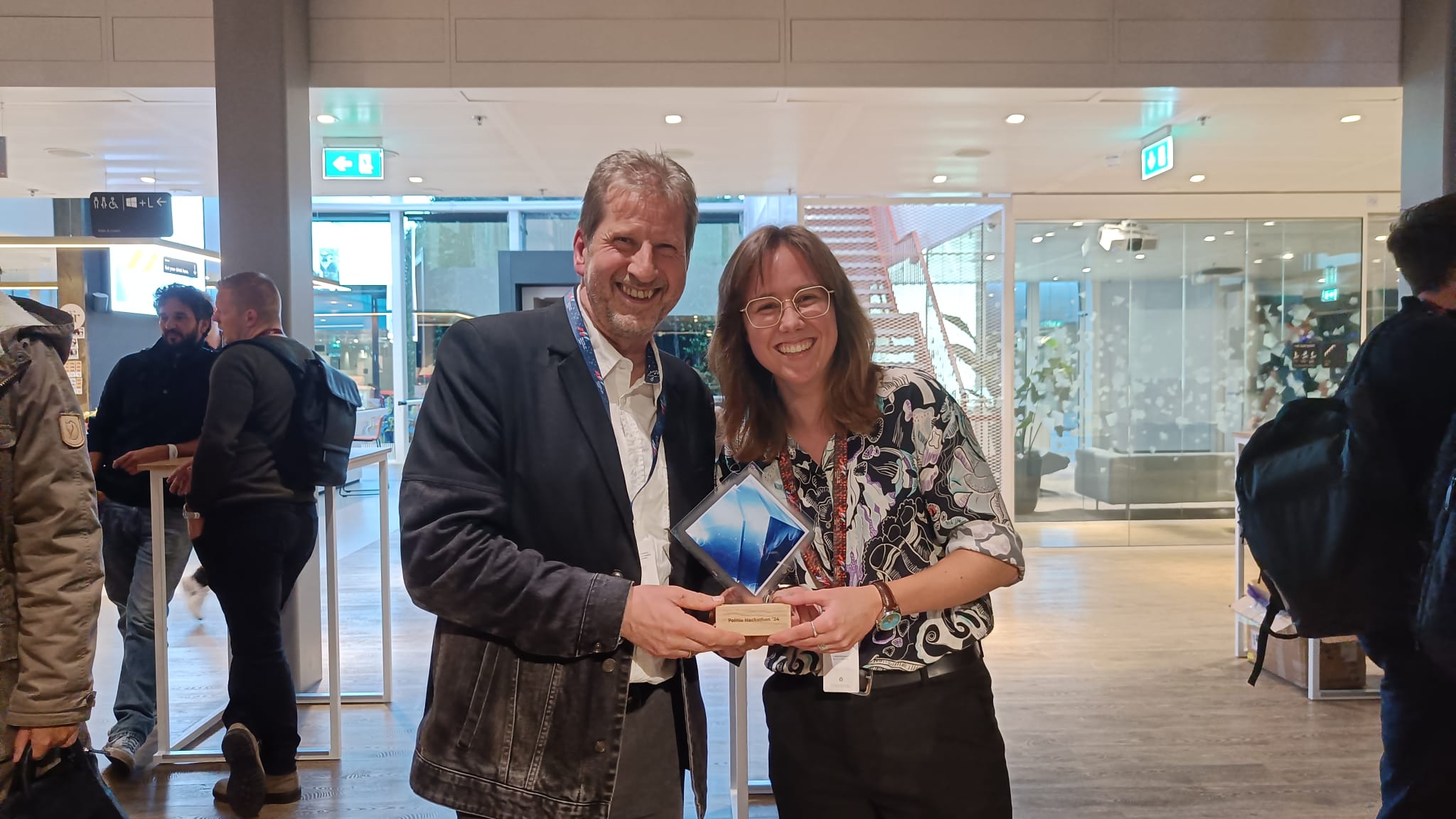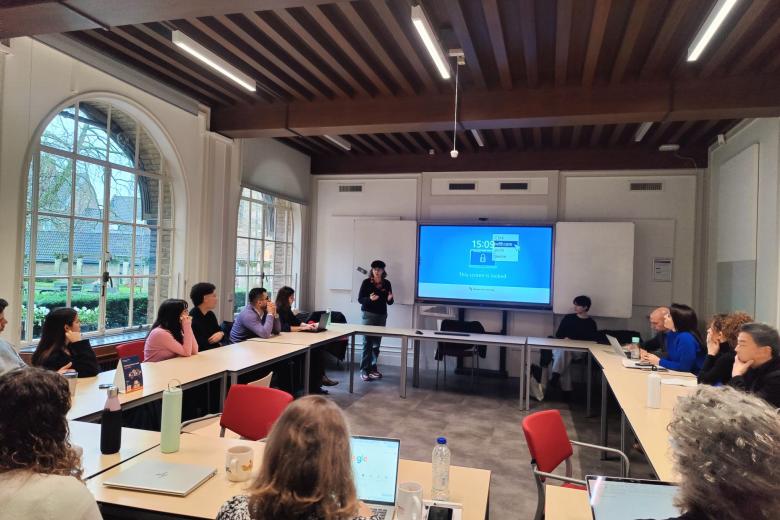One Step Closer to the Solution: Students Help With Cold Case Research
Through the International Cold Case Analysis Project (ICCAP), Maastricht University offers students the opportunity to gain practical experience in analysing real unsolved cases. For Isis van Cruchten, a recently graduated master student in Forensics, Criminology & Law and Law, this project was a perfect match with her interest in cold cases. By participating in the ICCAP, she not only developed her research skills, but also contributed to police investigations.

Isis' interest in cold cases arose during her European Studies bachelors. ‘During that period, all kinds of true crime series appeared on Netflix,’ she says. ‘Think of Conversations with a Killer: The Ted Bundy Tapes that was released in 2019.’ These and many other (documentary) series about true stories captivated many viewers. For Isis, however, the fascination for true crime went just a little further than for other fans of this genre. ‘In 2020, I worked on a cold case for the first time through Bureau Dupin. This is a collective that works on a cold case together with the police. After that, I ended up at the International Cold Case Analysis Project through an internship at Locate International. I liked it so much that after my bachelor's degree, I started the master's degree in Forensics, Criminology, and Law and worked on the project a total of three times.’
AMBER Alert Europe and ICCAP
AMBER Alert Europe works throughout Europe to bring missing or abducted children back home safely. Within ICCAP, the focus is on discovering new evidence in unsolved criminal and disappearance cases. This is done in collaboration with police officers, researchers and students from universities around the world.
Unique collaboration
The International Cold Case Analysis Project is organised annually and is one of the elective courses in the English-language Master's program Forensics, Criminology and Law. This project has been offered in collaboration with AMBER Alert Europe since the 2023-2024 academic year. The elective course Project Cold Case (formerly Gerede Twijfel) has been offered in the Dutch version of the Master's program for some time now. Students from the various universities study a real cold case and present their recommendations after the project. ‘This project was set up by Karsten Bettels within the Police Academy Lower Saxony and eventually ended up under the umbrella of AMBER Alert Europe,’ Isis explains. ‘The main goal of the project is to give students the opportunity to gain practical knowledge. In addition, you help to look for new possibilities in a cold case.’ For the time being, the ICCAP students only deal with German cases. ‘We look at cases that are currently pending. If we can provide concrete indications or make recommendations, the German police may be able to work on them.’
Closer to the solution
The fact that the students' recommendations are effective is demonstrated by the case of North Sea Man, among other things. On 11 July 1994, this man, over 1.90 m tall, was found in the North Sea with iron shoe lasts on his belt. How he died is somewhat clear, but the man's identity is still unknown. On the advice of the ICCAP team, an isotope study was carried out. This allows researchers to determine where someone lived, based on factors such as dietary patterns, which can be traced, among other things, from bones. ‘The isotope study showed that North Sea Man grew up in Australia. But how did he end up in the North Sea? He may have lived in northwestern Europe for years,’ says Isis. ‘This investigation allowed Locate International to take another step forward with a media appeal in the British program Crimewatch. The man was wearing clothes from Marks & Spencer, a retail company in that country. At the time, the company also had stores in the Netherlands. ‘Maybe he was walking around here, also considering his height,’ I thought. That’s why I contacted Opsporing Verzocht, which covered the case in a broadcast. It resulted in thirty tips, which is a lot for a case from 1994.’ The case has not yet been solved, but thanks to the help of the ICCAP team, many steps have been taken in the case.
Analysing puzzle pieces
How do the students get started with a cold case? It all starts with reading a file that is shared online with all the students participating in the project. In it, they find all the evidence that has been collected and preserved over the years. ‘We do all our research based on this file. You have to assume that it contains a little over a thousand pages,’ says Isis. ‘That is why I make summaries and start by separating the main and secondary issues. With that information, I create a timeline that I then use for multiple scenario reconstructions. What questions remain unanswered? And how can we get an answer to those questions? In this way, we gradually collect all the puzzle pieces that are needed to make a recommendation to the police at the end of the project.’
The knowledge gained from the master Forensics, Criminology, and Law can be applied while trudging through the files and analysing the documents. ‘In the elective Criminalistics and Forensic DNA, you learn which red flags you can use to recognise a staged crime scene. In the ICCAP, I learned to apply Chantal Epskamp’s methodology for scenario reconstruction. And let’s not forget about collaboration. You work with students from different universities throughout the project, and everyone has their own way of working.’
Ready for the next step
Isis has now graduated with a nice 8.5 for her thesis entitled ‘Opening Up the Freezer: Analysing the Current Practices of Cold Case Homicide Prioritisation’. A place in a cold case team is Isis’s big dream. “Thanks to ICCAP, I have fortunately already gained a lot of experience. I would definitely recommend others to participate. You learn a lot from it. Not only in terms of knowledge, but also connections with experts that can come in handy later.”
Also read
-
Reducing the Digital Divide: Empowering Students to Train, Evaluate, and Use AI Text Models
The Maastricht Law and Tech Lab, together with the Brightlands Institute for Smart Society (BISS), obtained a € 100.000 a Comenius Senior Teaching Fellow grant.
-
Meet the Maastricht Centre for Human Rights
On 8 December, the Meet the Maastricht Centre for Human Rights event took place.
-
Mariam Aroian guest researcher at IGIR
Mariam Aroian will visit IGIR for three months, between December 2025 and February 2026. Her current research focuses on copyright and artificial intelligence.